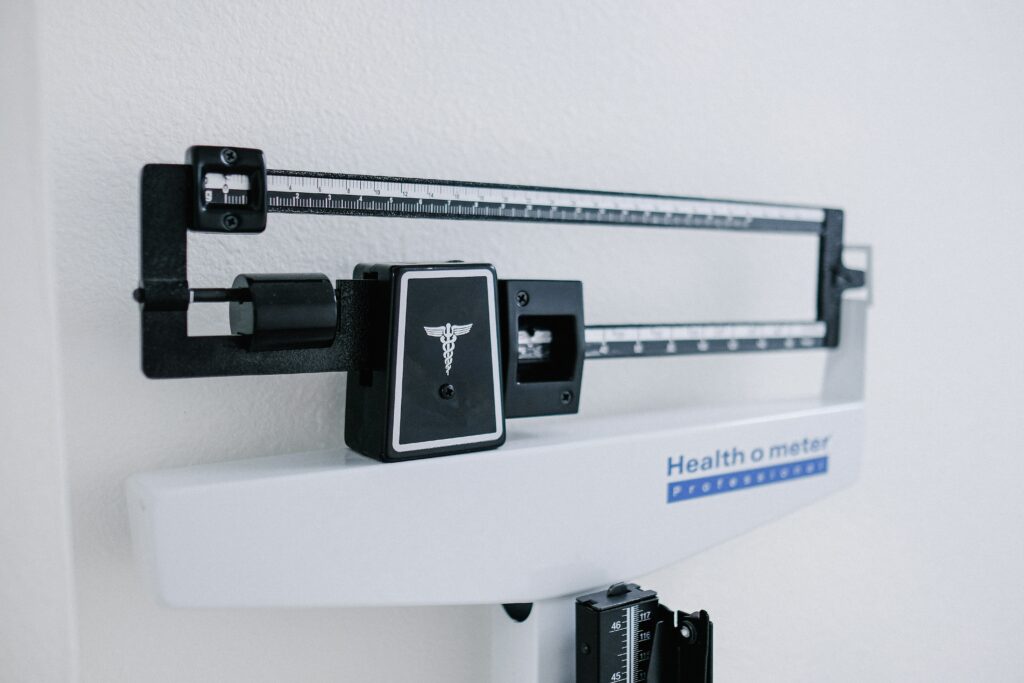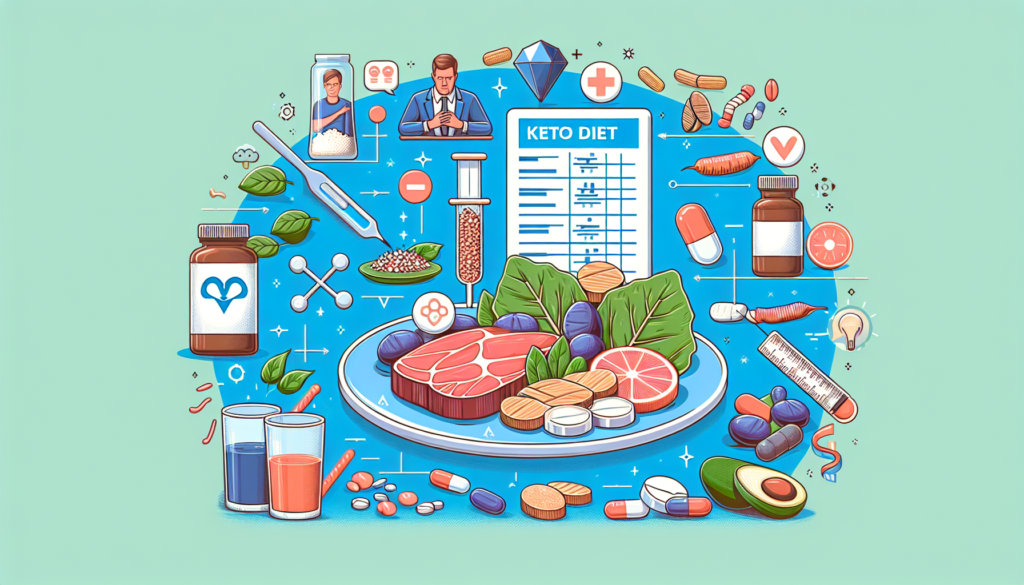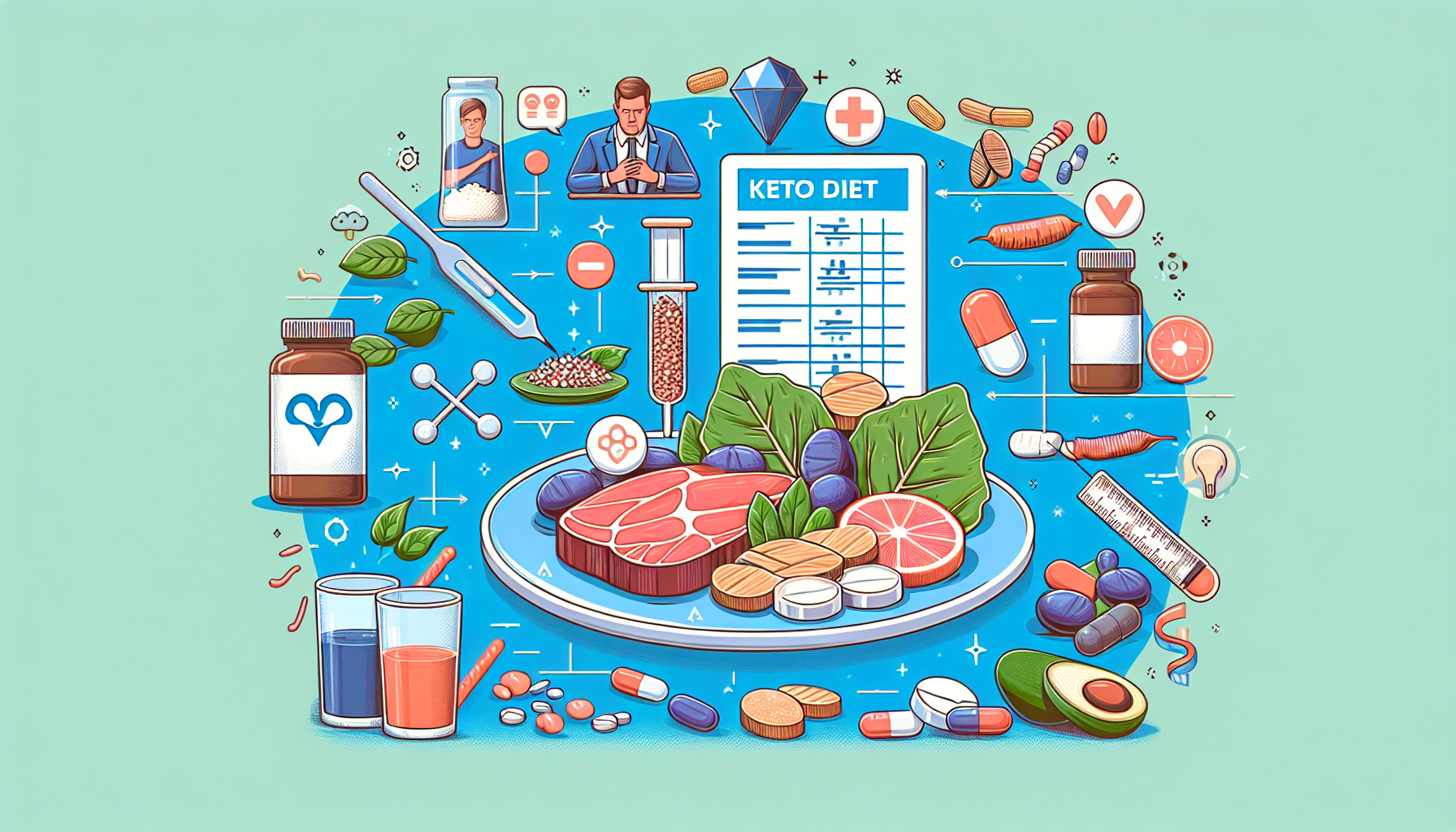If you’re considering embarking on the popular keto diet, it’s essential to have a comprehensive understanding of the potential risks involved. In this article, you’ll discover guidelines for approaching the keto diet in a safe and informed manner. From guidance for beginners to specialized approaches for various groups like athletes and children, this article covers it all. It also delves into the impact of the keto diet on health and performance, lifestyle integration, combining keto with other diets and practices, and special circumstances such as pregnancy. With this informative and practical content, you’ll be equipped to navigate the world of the keto diet with confidence and make informed decisions about your own health and well-being.
Potential Risks of the Keto Diet: Guidelines for a Safe Approach
Introduction
Welcome to the comprehensive guide to the ketogenic diet! In this article, we will explore the principles, potential risks, safety guidelines, and adaptability of the keto diet to various dietary needs. Whether you’re a beginner looking to understand the basics or seeking information on how to integrate the keto lifestyle into your daily routine, this guide has got you covered. So, let’s dive in and discover everything you need to know about the keto diet.
Principles of the Keto Diet
What is the keto diet?
The ketogenic diet, popularly known as the keto diet, is a low-carbohydrate, high-fat diet that aims to shift your body’s primary fuel source from carbohydrates to fats. By significantly reducing your carbohydrate intake and increasing your fat consumption, you induce a metabolic state called ketosis.
How does the keto diet work?
When you limit your carbohydrate intake, your body is forced to find an alternative source of fuel. It starts breaking down fats into ketones, which are then used as an energy source. This metabolic process, known as ketosis, allows your body to efficiently burn fat and potentially lead to weight loss.
Goals of the keto diet
The keto diet is widely known for its potential to aid in weight loss. However, it is also utilized for other health benefits, such as managing blood sugar levels in individuals with type 2 diabetes, improving mental clarity and focus, and even reducing seizures in certain cases of epilepsy.

Potential Risks and Side Effects
Keto flu: What is it and how to manage it?
One common side effect of the keto diet is the “keto flu,” which can occur during the initial transition phase. It includes symptoms like fatigue, irritability, headaches, and nausea. However, there are ways to manage these symptoms and make the transition to ketosis smoother.
Nutrient deficiencies on the keto diet
Due to the restriction of certain food groups on the keto diet, it’s crucial to be mindful of potential nutrient deficiencies. Specifically, deficiencies in vitamins and minerals like vitamin C, folate, and magnesium may arise. We’ll discuss how to ensure adequate nutrient intake on the keto diet.
Impact of the keto diet on gut health
The keto diet can have both positive and negative effects on gut health. It may help reduce inflammation and promote a healthier gut environment. However, there are some concerns about the long-term impact of the keto diet on gut microbial diversity. We’ll delve into the research and discuss strategies to maintain a healthy gut while on the keto diet.
Effects of the keto diet on cholesterol levels
The keto diet often sparks concerns about its effect on cholesterol levels. While it may initially cause a temporary increase in LDL cholesterol levels, it is important to understand the bigger picture and how the diet can positively impact other aspects of cardiovascular health.
Possible long-term effects of the keto diet
As with any diet, it’s essential to consider the potential long-term effects of the keto diet. We’ll explore the current research and discuss the need for further studies to evaluate the safety and sustainability of the keto diet in the long run.
Safety Guidelines for a Healthy Approach
Consulting with a healthcare professional before starting the keto diet
Before embarking on any significant dietary changes, it’s crucial to consult with a healthcare professional. They can assess your individual needs, medical history, and guide you through the process of starting the keto diet safely.
Gradual transition and monitoring of symptoms
Transitioning to the keto diet should be done gradually to allow your body to adjust. By monitoring your symptoms and how you feel throughout the process, you can make adjustments as necessary and ensure a smooth transition.
Proper hydration and electrolyte balance
On the keto diet, your body excretes more water and electrolytes, making proper hydration and electrolyte balance essential. We’ll discuss the importance of maintaining adequate hydration and provide tips to optimize electrolyte levels.
Variety and balance in food choices
While the keto diet encourages high-fat foods, it’s important to prioritize variety and balance. Including a diverse range of fats, vegetables, proteins, and other food groups not only ensures adequate nutrient intake but also makes the diet more enjoyable and sustainable.
Supplementing appropriately on a keto diet
Supplements can play a crucial role in supporting your nutritional needs while on the keto diet. We’ll explore the key supplements to consider, such as omega-3 fatty acids, fiber, and electrolytes, and discuss how to choose high-quality supplements that complement the diet effectively.

Adapting the Keto Diet to Special Dietary Needs
Keto diet for athletes: optimizing performance and recovery
For athletes, the keto diet can be modified to support performance and recovery. We’ll discuss the considerations and potential benefits of using the keto diet in an athletic context.
Keto diet for women: considering hormonal changes and fertility
Women may have unique considerations when it comes to the keto diet, including hormonal changes and fertility. We’ll explore how the ketogenic diet can be adapted to support women’s specific needs.
Keto diet for men: addressing specific health concerns
Men may also have specific health concerns that can be addressed through the keto diet. We’ll examine the potential benefits and considerations for men following a ketogenic lifestyle.
Keto diet for children: safety and considerations for growth and development
When considering the keto diet for children, safety and appropriate guidelines are of utmost importance. We’ll discuss the potential benefits and challenges of implementing the keto diet in children, and explore how it can be safely managed during their growth and development.
Managing Health Conditions on the Keto Diet
Effectiveness of the keto diet in managing Type 2 diabetes
The keto diet has shown promise in managing type 2 diabetes by improving insulin sensitivity and blood sugar control. We’ll delve into the research and discuss the potential benefits and considerations for individuals with this condition.
Keto diet and heart health: examining the potential risks and benefits
Given the focus on high-fat foods in the keto diet, concerns about its impact on heart health arise. We’ll examine the research and discuss the potential risks and benefits of the keto diet in relation to cardiovascular health.
Keto diet for individuals with kidney disease
Individuals with kidney disease may need to adjust the macronutrient ratios and closely monitor their diet while following the keto diet. We’ll explore the considerations and potential benefits for individuals with kidney disease.
Keto diet and thyroid function: what you need to know
Thyroid function is a crucial aspect of overall health, and it’s important to understand how the keto diet may impact it. We’ll discuss the potential effects on thyroid function and how to support thyroid health while following a ketogenic lifestyle.

Integrating the Keto Diet into Daily Life
Tips for dining out on a keto diet
Eating out can be challenging when following a specific diet, but it’s entirely possible to enjoy dining out while on the keto diet. We’ll provide tips and strategies to navigate menus and make keto-friendly choices when dining out.
Meal planning and prepping on a keto diet
Meal planning and prepping can contribute to the success and ease of following the keto diet. We’ll share practical tips and resources to help you plan and prepare delicious and nutritious keto meals ahead of time.
Understanding the science behind the keto diet for informed choices
Having a foundational understanding of the science behind the keto diet can empower you to make informed choices and navigate the numerous information available. We’ll delve into the science behind ketosis, fat metabolism, and other key concepts related to the keto diet.
Combining Keto with Other Diets and Practices
Intermittent fasting and the keto diet: benefits and considerations
Intermittent fasting and the keto diet share some similarities and can be combined for potential synergistic benefits. We’ll explore the benefits and considerations of integrating intermittent fasting with the keto diet.
Keto and bodybuilding: optimizing muscle growth and fat loss
For individuals interested in bodybuilding, the keto diet can be tailored to support muscle growth and fat loss goals. We’ll discuss the potential benefits and considerations of combining the keto diet with bodybuilding practices.
Exploring vegan keto diets: challenges and benefits
A vegan lifestyle can be compatible with the keto diet by adopting a vegan keto approach. We’ll discuss the challenges and benefits associated with a vegan keto diet and provide tips for those interested in following this specialized dietary approach.

Special Considerations: Keto During Pregnancy
Safety and guidelines for pregnant women on a keto diet
Pregnancy is a unique phase of life that requires special consideration when it comes to nutrition. We’ll discuss the safety guidelines and considerations for pregnant women who are interested in following a keto diet.
Effects of the keto diet on fetal development
The potential impact of the keto diet on fetal development is an important consideration for pregnant women. We’ll explore the available research and discuss the potential effects and risks associated with the keto diet during pregnancy.
Managing nutrient needs during pregnancy on a keto diet
Meeting the nutrient needs of both the mother and the baby is critical during pregnancy. We’ll provide insights and strategies on how to ensure adequate nutrient intake while on a keto diet during pregnancy.
Conclusion
Congratulations! You’ve reached the end of the comprehensive guide to the ketogenic diet. Throughout this article, we explored the principles, potential risks, safety guidelines, adaptability, and various considerations associated with the keto diet. Whether you’re a beginner or someone looking to tailor the keto diet to your unique needs, we hope this guide has provided you with the information you need to make informed choices and navigate the keto lifestyle with confidence. Remember to consult with a healthcare professional before making any major dietary changes, and customize the keto diet to suit your individual needs and goals. Here’s to a healthy and fulfilling keto journey!



